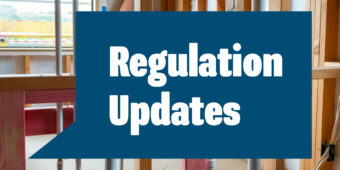How could fraud affect your business?
01 May 2014, Business Tips, Prove Your Know How

Crowe Horwath has seen an increase in fraud in New Zealand over the past five years. While that doesn’t mean you should suddenly become suspicious of everyone around you, certain facts can’t be ignored. General trends show that business fraud is likely to be committed by an employee, generally from a position of trust and responsibility.
Fraud can take a number of forms and includes:
- Manipulation, falsification or alteration of accounting records for personal benefit.
- Theft of assets, including cash or stock.
- Payments for fictitious invoices or payroll obligations.
- Using business assets for personal gain, eg fraudulent loans.
A model explaining the factors present in almost all fraud situations, known as the ‘Fraud Triangle’, was devised by American sociologist and criminologist Donald R Cressey. It suggests that organisations eliminate at least one of the following components to decrease the probability of fraud.
- Motive – the need to commit fraud.
- Rationalisation – the mind-set of the fraudster, whereby they justify committing fraud.
- Opportunity – the situation that enables the fraud to occur.
Business owners and managers should therefore be aware of the components of the ‘fraud triangle’ and how they relate to their particular circumstances.
Motive
An important consideration is the motive of employees/stakeholders to commit fraud. Examples of questions that may be considered include:
- What incentives are offered to employees and suppliers?
- What are the risks of accounting records being manipulated to present a false position?
- Does the business have employees who do not take holidays – if so, why is this the case?
- Do any employees have financial pressures or gambling, drug or alcohol problems?
Rationalisation
The mind-set of individuals within the business who may be in a position to commit fraud should be studied. Examples of questions that may be considered include:
- Has an employee been passed over for promotion, and therefore may be displaying a level of indifference to their responsibilities?
- Does an employee with a high level of responsibility display evidence of being marginalised within the organisation?
- Are there ineffective systems and controls that are not protecting the assets of the business?
Opportunity
This is the only component of the ‘fraud triangle’ that you can have a significant effect on –the introduction and establishment of adequate controls and systems. You should seriously consider all controls and systems that are in place, in order to reduce the risk of fraud. Examples of questions that may be considered include:
- Are the business’ duties sufficiently segregated? Where practical, duties should be segregated as follows:
- Authorisation of all documents, eg purchase invoices.
- Transactional accounting through the organisation’s accounting system.
- Physical custody and security of assets.
- Responsibility for the reconciliation and review of accounting balances.
- Authorisation of payments to creditors.
- Proper supervision and authorisation of payroll.
- How is the performance of management and staff monitored, such as regular reviews?
- What systems are in place to test that controls are operating as necessary?
While the risk of fraud can never be fully eliminated, it can be reduced to an acceptable level.
In the current economic environment, businesses really haves no choice but to consider fraud and the systems and controls in place to achieve this acceptable level. It is unfortunately true that on too many occasions, these considerations are not undertaken until after fraud has been committed, financial losses suffered and recovery of these losses is remote, if not impossible.
In the worst-case scenarios, fraud can significantly affect both the financial viability and/or reputation of the organisation. Therefore, given the available resources and day-to-day running of a business, be proactive in considering the risk from fraud and the effect it would have, by paying attention to each or all of the components of the ‘fraud triangle’ as they relate to your own circumstances.
About Crow Horwath
If you would like to know more about how to mitigate the risk of fraud within your organisation, or if your business has recently suffered fraud and you wouldike advice around strengthening your systems and controls, please contact Paul Lawrence (paul.lawrence@crowehorwath.co.nz), or contact your local Crowe Horwath advisor on 0800 494 569 or www.crowehorwath.co.nz
Register to earn LBP Points Sign in



